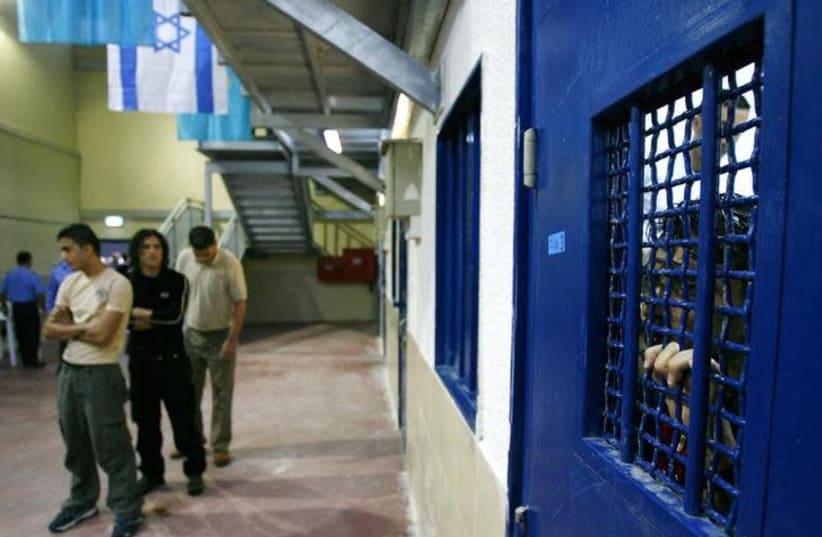Palestinians on Wednesday expressed outrage over a film that revolves around a 17-year-old Palestinian girl who was conceived with the smuggled sperm of her father, a security prisoner held by Israel.
The girl, Amira, was raised believing that she was conceived in this unconventional manner. She later discovered that her father’s semen had been replaced with that of an Israeli prison guard.
According to Palestinian sources, over the past decade, more than 100 children have been conceived using smuggled sperm from security prisons.
The film, shot in Jordan, is co-produced by Jordan, Egypt and the Palestinians.
Jordan has nominated the film as its official entry for the 94th Academy Awards (Oscars) to compete in the international feature film category, the Jordan Times reported.
Palestinian prisoners' institutions strongly condemned the Jordanian Feature-Film ‘Amira’ which insults the Palestinian prisoners in the Israeli jails and demanded to immediately ban the broadcast of the film.#Pull_Out_Amira #اسحبوا_فيلم_أميرة pic.twitter.com/cvtdpBicFx
— HudaFadil #Gaza (@HudaFadil9) December 8, 2021
Amira had its world premiere at the 78th Venice International Film Festival, where it won two major awards, according to the newspaper.
The Palestinian Authority and several Palestinian groups, including those representing security prisoners in Israeli jails, condemned the drama film as an “insult to the dignity” of the inmates.
The PA Culture Ministry and a number of Palestinian groups defending the rights of the security prisoners said on Wednesday that the film is “a clear infringement and insult to the dignity of the prisoners, their heroism and their great history of struggling.”
In a statement, PA Culture Minister Atef Abu Saif said: “The film clearly harms an important issue for our people, strikes our national and struggle narrative and unequivocally offends the history and struggles of the Palestinian prisoners.”
Abu Saif pointed out that the PA and groups representing the prisoners and their families recently held a meeting to discuss the steps that need to be taken “to address the negative repercussions of the film.”
The PA minister warned against circulating the controversial film, saying this would have serious repercussions on the issue of the prisoners, “especially as it harms their families after they have children from the sperm-smuggling operation.”
He urged the Jordanian authorities to look seriously at the repercussions of the results of the “offensive” film.
Three groups representing the prisoners – Commission For Prisoners Affairs, High Commission For Follow-Up of Prisoners’ Affairs and Palestinian Prisoners Club – claimed that the film was “consistent” with the Israeli narrative.
The groups said that the issue of sperm-smuggling from Israeli prisons has been the “most prominent achievement through which prisoners were able to break the prison wall and create hope.” The issue has become the focus of global attention, they said.
Efforts were underway “to confront all those who contributed to the production of the film and put an end to all those who seek to distort the struggle of the Palestinian prisoners and their families,” the groups said.
Urging Arabs and Palestinians to boycott the film, the groups warned that dealing with or promoting it will be considered a “betrayal of the struggle of our people.”
